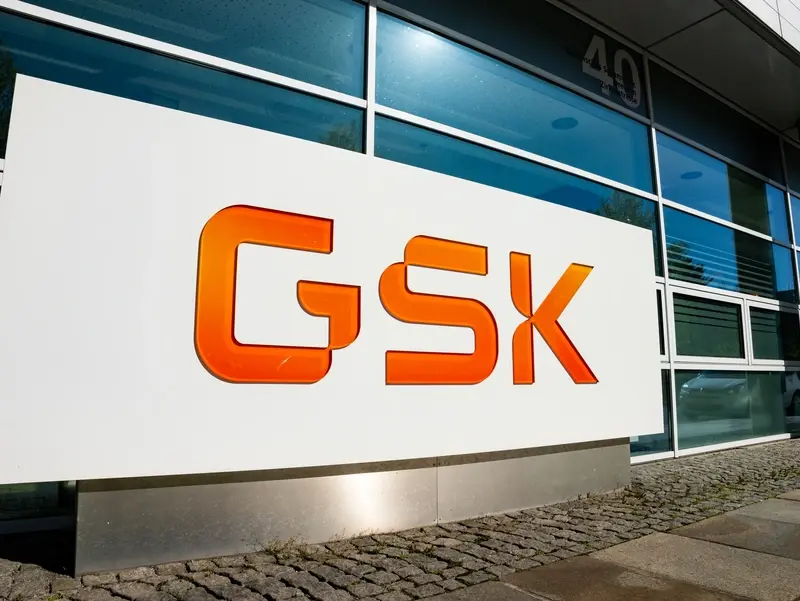
- Drug gets US regulatory fast-track
- Second-phase trials planned for H2
- Significant need for new treatments
Global biopharma company GSK (GSK) said it had received US Breakthrough Therapy Designation for its investigational antibody-drug to treat patients with extensive-stage small-cell lung cancer.
GSK shares dipped 13p or 0.8% to £15.86 on a weak day for UK stocks generally.
WHAT DOES IT MEAN?
The regulatory designation given by the FDA (Food and Drug Administration) is aimed at accelerating the development and review of drugs which have potential to show significant improvements over existing therapies for serious conditions.
GSK's global head of oncology Hesham Abdullah commented: ‘Extensive-stage small-cell lung cancer is aggressive with poor prognosis and significant need for new treatments.
‘Today's Breakthrough Therapy Designation supports our ambition to accelerate GSK'227 for these patients as part of our broader ADC programme focused on developing new treatment options with transformational and first-to-market potential.’
WHAT HAPPENS NEXT?
GSK said results from the early-stage clinical trial will be presented at the 2024 World Conference on Lung Cancer taking place in early September and it plans to begin global phase-two trials in the second half of the year.
The company acquired exclusive global rights (excluding mainland China, Hong Kong, Macau and Taiwan) to progress clinical development and commercialisation of the drug from Hansoh Pharma in early 2024.
Lung cancer is one of the most common cancers worldwide and in the US around 15% of all lung cancers are small-cell. More than two-thirds of sufferers have extensive-stage disease which means the cancer has spread throughout one or both lungs or other parts of the body.
Most patients relapse after initial treatment and the median overall survival using current standard of care treatments is five to six months.




